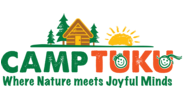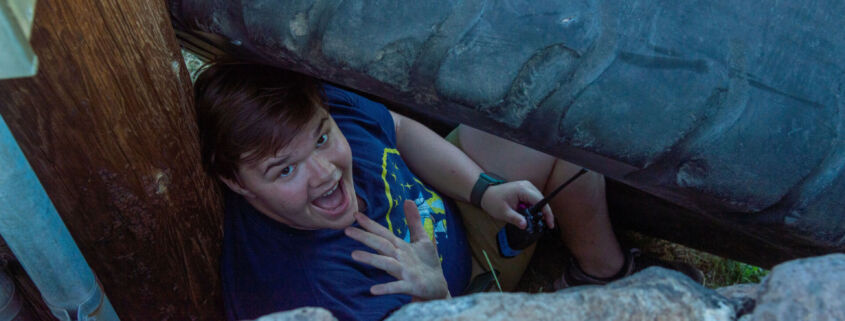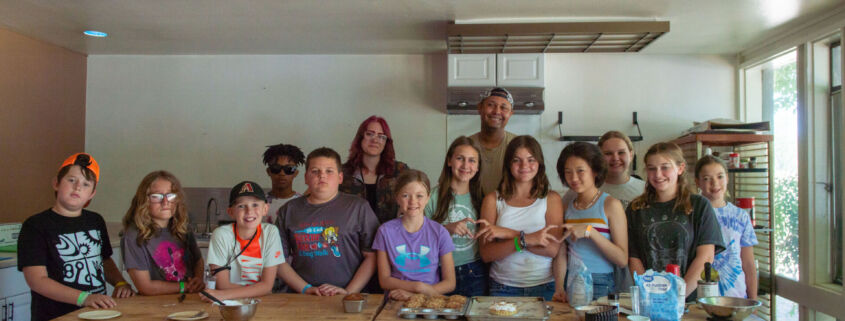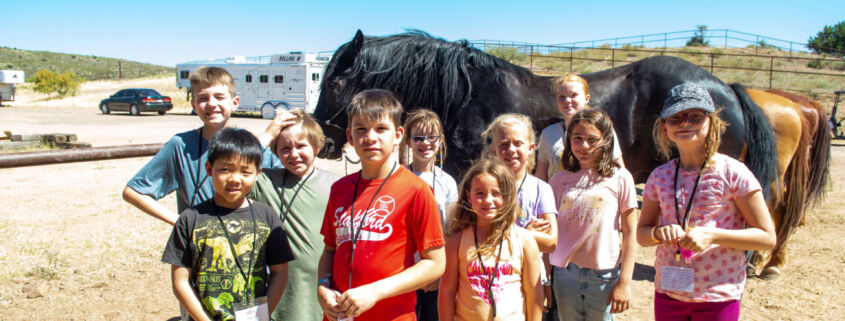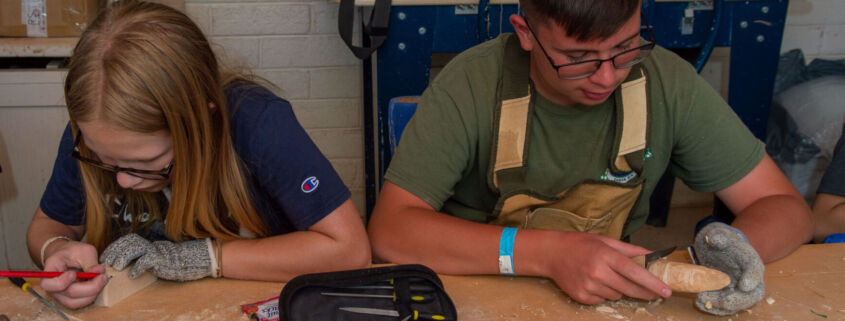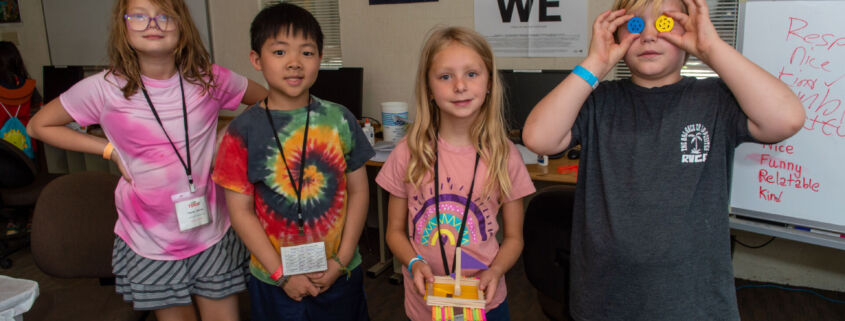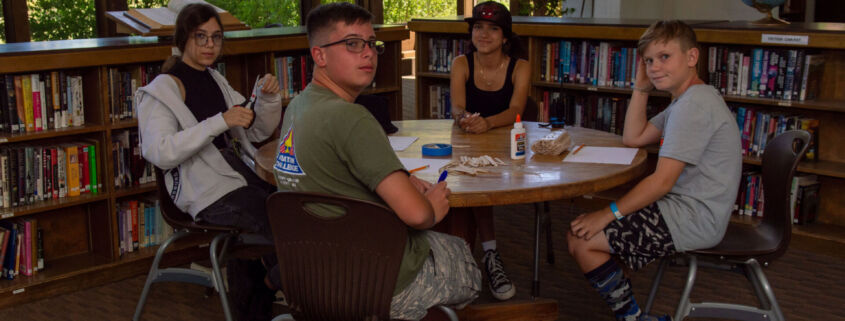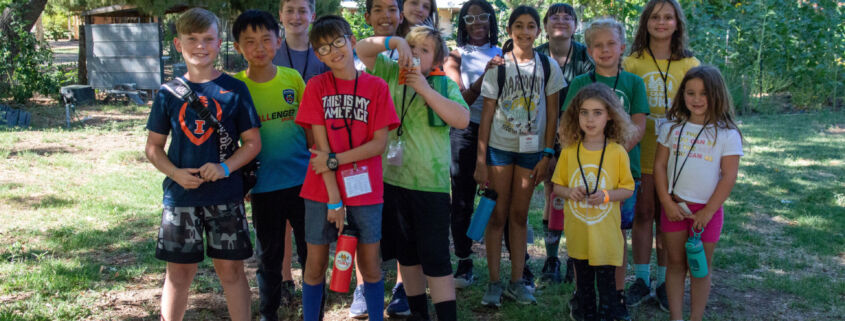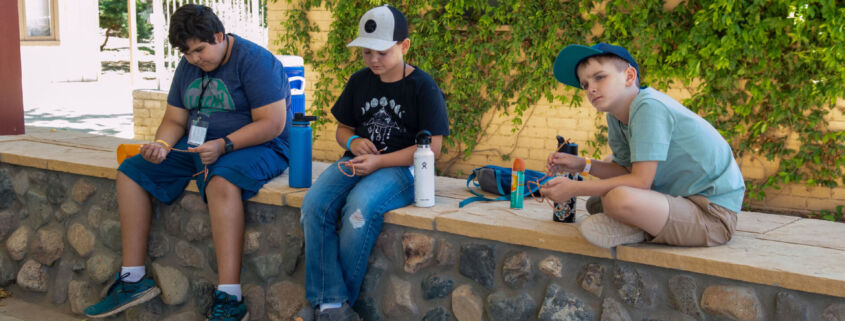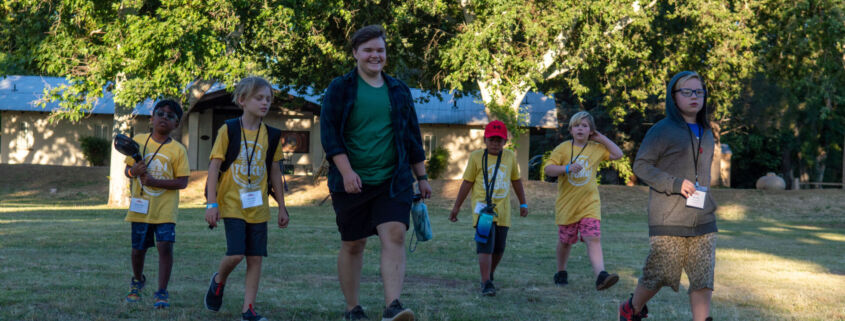Peoria, Arizona. May 17, 2023. In a unique partnership, Arizona-based Camp Tuku, a residential summer camp for kids age 6 – 17 years old, is collaborating with Emory University’s Center for Contemplative Science (The Center) to integrate Camp Tuku’s mindfulness summer camp program with The Center’s SEE Learning™ curriculum. The redesigned curriculum will integrate competencies, resources, and skills that support youth wellbeing and flourishing.
There are two momentous, camp-wide events at Camp Tuku that are filled with teachable moments for our campers: Capture the Counselor and Toucan-a-thon. Capture the Counselor is an “advanced hide n’ seek” game that takes place early in the camp week. Toucan-a-thon occurs at the end of the week, and we’ll talk about that event in an upcoming blog post. You might be wondering, just what are the teachable moments that come from a game based on finding a counselor whose hiding out somewhere around camp? Read on to find out…
When your kid writes home from Camp Tuku, you will hear all about what’s cookin’ in the Camp Tuku kitchen and around the campfire. Chef Mark teaches life skills alongside cooking skills as he guides kids of all ages through the steps involved with cooking a variety of amazing entrees and desserts.
From the famous (or is it infamous) TikTok upside down pastry to octopus pizza to campfire quesadillas and the “best ever” open-flame popcorn…campers become chef-scientists when they enter the Camp Tuku kitchen. (Check-out all the camp activities and how we mindfully integrate science, creativity, and fun into all that we do!) Read more
It’s no exaggeration that Camp Tuku is a summer camp like no other: At Camp Tuku you’ll find all the traditional activities of summer camp (sports, arts, outdoor excursions) plus the opportunity to learn mindfulness practices that support each camper’s social-emotional wellbeing.
Every year I’ve gone to Camp Tuku (I’m on my third year), I’ve learned something new–a craft, a hobby, stress management skills and found a way to use it in my life back at home. More than that, I’ve learned how to navigate difficult situations with a lot more calm and a lot less stress. And that says a lot, for me, anyway, because I’m kind of a high-strung kid. My home life had been really rocky, especially during and after the pandemic. And, I don’t always have the best grades. Since I started coming to Camp Tuku, though, a lot has changed for me.
Woodworking isn’t a hobby most kids encounter in their digital-focussed lives. To some degree, it’s a lost art form. Not so at Camp Tuku where woodworking brings forth campers’ creativity, enhances attentional skills, and sparks interest in a potential lifelong hobby.
You might be thinking about sending your child to Camp Tuku in New York or Arizona. Maybe you’ve pursued our website and seen our photos and videos, but are still wondering “is Camp Tuku a good fit for my child?” We’d like to share a bit more about how we embrace the uniqueness of each child who attends Camp Tuku.
Whether working together to figure out how to design props with limited materials or use uncommon materials to build a model boat that will move through water, Camp Tuku’s drama and innovations classes help kids tap into their innate curiosity, strengthen creativity, and learn the value of collaboration.
You might not think that innovations, which is a STEM-based class, has much in common with drama class. So, not true! The skills the kids are learning in innovations carry over to drama, and vice-versa.
- The creativity of crafting a performance supports creative problem solving in the innovations class.
- Working as a team to figure out how to build an object carries over to the tasks required when building props for a performance.
If your child hasn’t been to Camp Tuku, there’s no better way to get a sense of what happens at camp than peeking into one of our older camper’s photo diary entries. We hope you enjoy this entry.
If you have questions about sending your child to Camp Tuku-Arizona (June 2023) or Camp Tuku-Catskill Mountains (July 2023), please contact us at 928-224-5855
Within every activity at Camp Tuku, campers are learning something new, giving them the opportunity to practice patience, strengthen focus and attention, and enjoy the great outdoors. Let’s take a behind-the-scenes look at camper experiences in one of camper favorites: wilderness exploration.
Just before morning assembly on Monday, June 19, 2023, at Camp Tuku in Arizona, campers were chatting amongst themselves on the lawn just outside Founders Hall. Our Outreach and Development Director, Karen, was on scene, capturing “words of wisdom” from our campers as they described their first night at camp and what they are looking forward to in the coming week:
- “We were up at 5 a.m. The earlier you get up, the more fun you get to have in the day!” (Their counselor concurred; their entire cabin of 8 year old girls was up and roarin’ to go!)
- “I can’t wait to try all the things (activities) I don’t get to do in my real life.” Such as? “Shooting arrows!” (archery)
- “It wasn’t my comfy bed from home, but I was so tired from being so excited, I slept just fine.
- “I wish real school let us spend this much time outside doing cool stuff.”
- “I can’t wait to get on the horses and also dance and drama.”
- “I really want to learn how to be more chill. School stresses me out way too much.”
